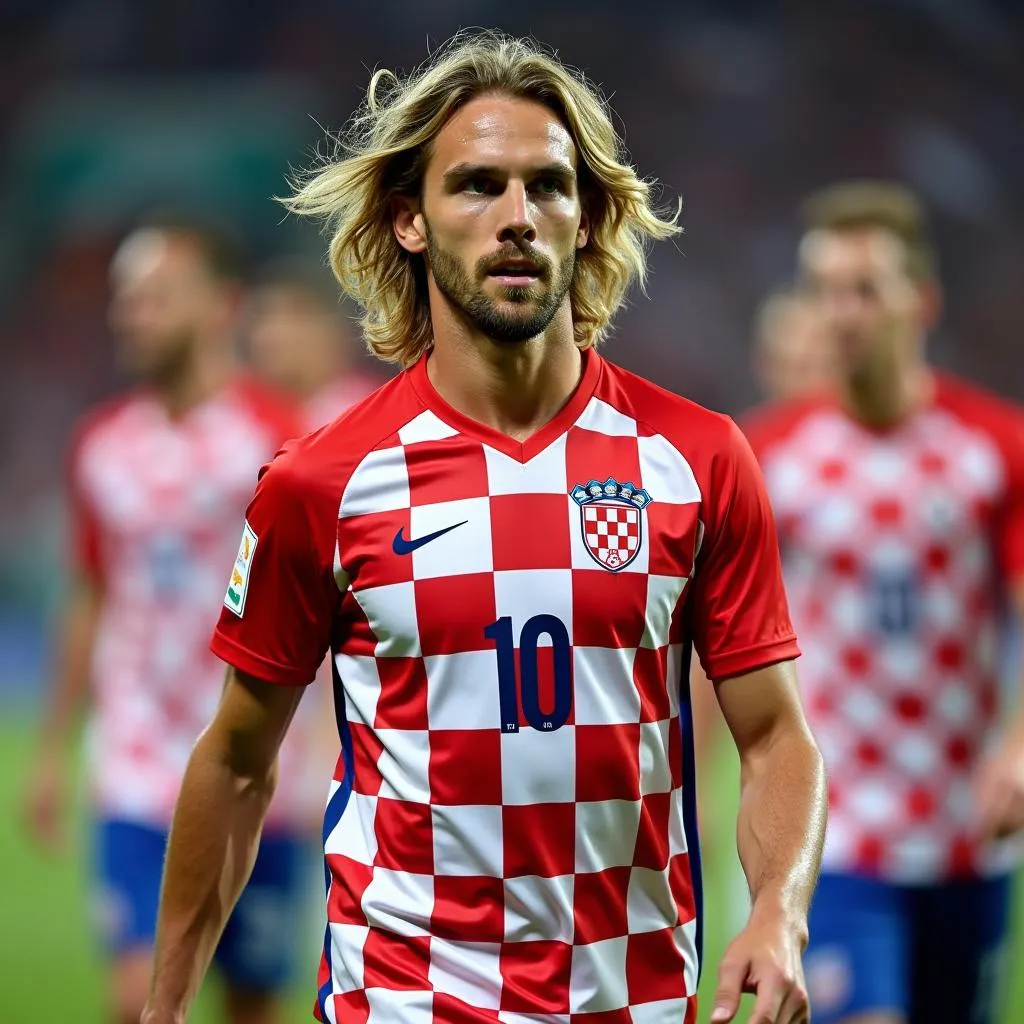The Croatian national football team, often referred to as the Vatreni (Blazers), has consistently punched above its weight on the world stage. Despite being a relatively young nation, Croatia boasts a rich footballing history, particularly in the FIFA World Cup. Their journey has been marked by moments of brilliance, unexpected triumphs, and heartbreaking defeats, solidifying their place as one of the most exciting and unpredictable teams in international football.
From Underdogs to Contenders: Croatia’s World Cup Journey
Croatia’s first foray into the World Cup came in 1998, just seven years after gaining independence. What followed was a fairytale run that captivated the world. Led by the legendary Davor Šuker, the Vatreni defied expectations, reaching the semi-finals and eventually securing a historic third-place finish. This remarkable achievement put Croatian football firmly on the map, establishing them as a force to be reckoned with.
The 2018 World Cup in Russia saw Croatia reach even greater heights. Inspired by the midfield mastery of Luka Modrić, they navigated a challenging group stage and overcame formidable opponents in the knockout rounds, including a dramatic penalty shootout victory over hosts Russia in the quarter-finals. Their dream run culminated in a heartbreaking loss to France in the final, but not before etching their names in World Cup folklore.
The Croatian Style of Play: Technical Prowess and Tactical Flexibility
Croatia’s success on the world stage can be attributed to a unique blend of technical prowess, tactical flexibility, and unwavering team spirit. Their playing style is characterized by intricate passing, intelligent movement, and a willingness to control possession. They are equally adept at playing out from the back and launching swift counter-attacks, making them a constant threat to any opposition.
The Croatian midfield has consistently been the engine room of the team, boasting a wealth of talent over the years. From the legendary trio of Boban, Prosinečki, and Šuker in 1998 to the modern-day brilliance of Modrić, Rakitić, and Kovačić, their ability to dictate the tempo and create scoring opportunities has been instrumental in their success.
Looking Ahead: A New Generation Ready to Shine
Despite the retirement of several key players from the 2018 generation, Croatia’s future remains bright. A new wave of talented youngsters has emerged, eager to follow in the footsteps of their predecessors. The likes of Joško Gvardiol, Borna Sosa, and Nikola Vlašić represent the next chapter in Croatian football, bringing a blend of youthful exuberance and technical quality to the team.
FAQs about the Croatia World Cup Team
1. What is Croatia’s best World Cup finish?
Croatia finished second in the 2018 FIFA World Cup in Russia.
2. Who is the current captain of the Croatian national team?
Luka Modrić is the captain of the Croatian national team.
3. What is the nickname of the Croatian national football team?
The Croatian national football team is affectionately known as the Vatreni, which translates to “The Blazers.”
Need More Information?
For further assistance regarding the Croatia World Cup team or any other football-related inquiries, please contact us:
Phone Number: 0372999996
Email: bong.da@gmail.com
Address: 236 Cầu Giấy, Hà Nội
Our dedicated customer support team is available 24/7 to answer your questions and provide comprehensive assistance.

